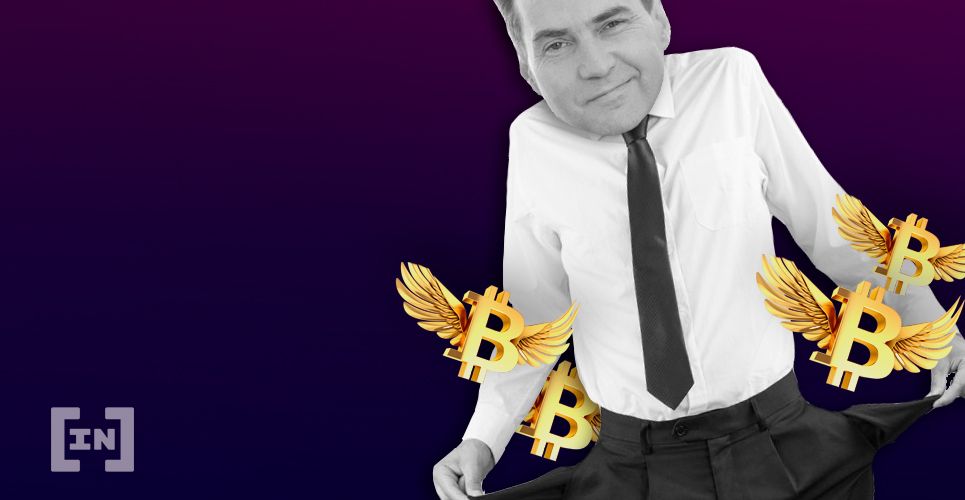Satoshi Nakamoto claimant Craig Wright claims the courts will be coming to seize Bitcoin (BTC) this year. The controversial Bitcoin SV (BSV) proponent argues that it will be the network’s miners complying with court orders that facilitate these seizures.
Many of Bitcoin’s loudest advocates make a big deal about the digital currency’s being apparently unconfiscatable. They argue that there is no way a seed phrase or private key committed to memory can be extracted under a normal police investigation.
Of course, those that don’t take such caution over their cryptocurrency storage arrangements still fall victim to confiscation. As BeInCrypto recently reported, the United States has seized plenty of Bitcoin over the years.
How Unconfiscatable is Bitcoin?
Most of the cryptocurrency that law enforcement manages to seize happens because of non-perfect security on behalf of the criminal. It’s also possible that a court could blackmail a known Bitcoin user — a ‘surrender the cryptocurrency and you’ll do less time’ sort of arrangement. While the impact is the same (the government takes control of the bitcoins), the latter isn’t technically a confiscation. Confiscating bitcoins is nothing like seizing funds stored in a bank. Law enforcement simply commands a bank to transfer illicit funds. With Bitcoin, there is no bank. To force a reorganization of the blockchain, one would have to control a significant portion of the network’s ever-growing hash rate.
Will Bitcoin Miners Really Comply With Court Orders?
Claiming to be the author of the Bitcoin whitepaper, Craig Wright disagrees entirely with the notion that Bitcoin is difficult to confiscate. As highlighted in the below tweets, he claims that the “first BTC seizure by courts” is coming this year.Wright says it will not be criminals forfeiting their private keys, either by negligence or as a result of pressure, but the miners themselves that facilitate the seizures. Essentially, he claims that the network’s miners will reorganize the blockchain to refund Bitcoin associated with previous crimes, from which network users lost out. Sure, it sounds like a valiant cause and, if successful, it would return some bitcoins to those who lost them. However, the knock-on effect would surely destroy Bitcoin’s value proposition to such an extent that the original user probably wouldn’t even want it anymore.Okay lad, lol. pic.twitter.com/uvbqj918gh
— Peter McCormack 👑 (@PeterMcCormack) February 26, 2020
[jnews_block_28 second_title=”Read More” header_type=”heading_5″ number_post=”4″ include_tag=”6413″ boxed=”true” show_border=”true”]
Given the distributed and shadowy nature of the Bitcoin mining network, it’s really not clear how “the courts” could apply sufficient pressure on enough miners to facilitate such a refund. Many Bitcoin observers, therefore, find the notion of confiscations through miners utterly ridiculous. Miners act in their own financial interests and there is no action that they could take that is less in their financial interests than damaging confidence in the network.
Trader and market analyst Ari Paul is among those critical of Wright’s legal posturing. He reasons that the system Wright describes, in which confiscation is the norm, is the antithesis of what many hold to be “Satoshi’s Vision”.
Despite the threats of legal backlash some within the industry have faced for criticizing Wright, Paul says he’s not afraid. After stating that Wright lacks the tact to manipulate the legal system, he adds:Ah yes, seizable and confiscatable, Satoshi’s vision for bitcoin. /s https://t.co/T7SyigPcWs
— Ari Paul ⛓️ (@AriDavidPaul) February 27, 2020
“I’m going to keep mocking Craig and publicly commenting… Craig’s amateurishness undermines this effort (as seen in Florida court).”
Disclaimer
In adherence to the Trust Project guidelines, BeInCrypto is committed to unbiased, transparent reporting. This news article aims to provide accurate, timely information. However, readers are advised to verify facts independently and consult with a professional before making any decisions based on this content. Please note that our Terms and Conditions, Privacy Policy, and Disclaimers have been updated.
Rick D.
A former professional gambler, Rick first found Bitcoin in 2013 whilst researching alternative payment methods to use at online casinos. After transitioning to writing full-time in 2016, he put a growing passion for Bitcoin to work for him. He has since written for a number of digital asset publications.
A former professional gambler, Rick first found Bitcoin in 2013 whilst researching alternative payment methods to use at online casinos. After transitioning to writing full-time in 2016, he put a growing passion for Bitcoin to work for him. He has since written for a number of digital asset publications.
READ FULL BIO
Sponsored
Sponsored
